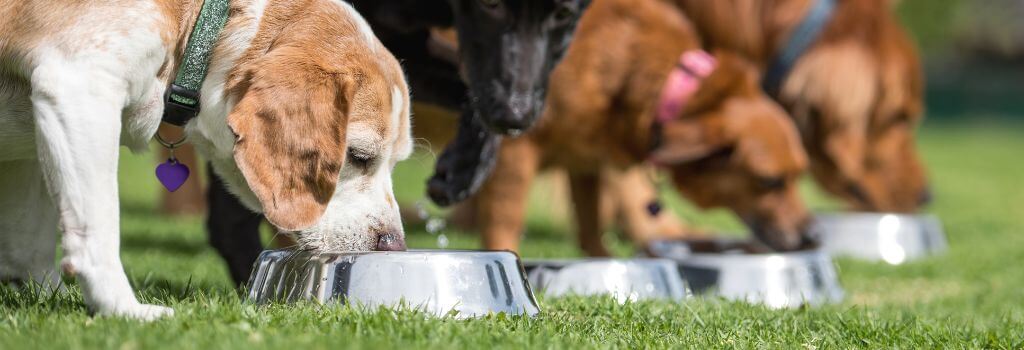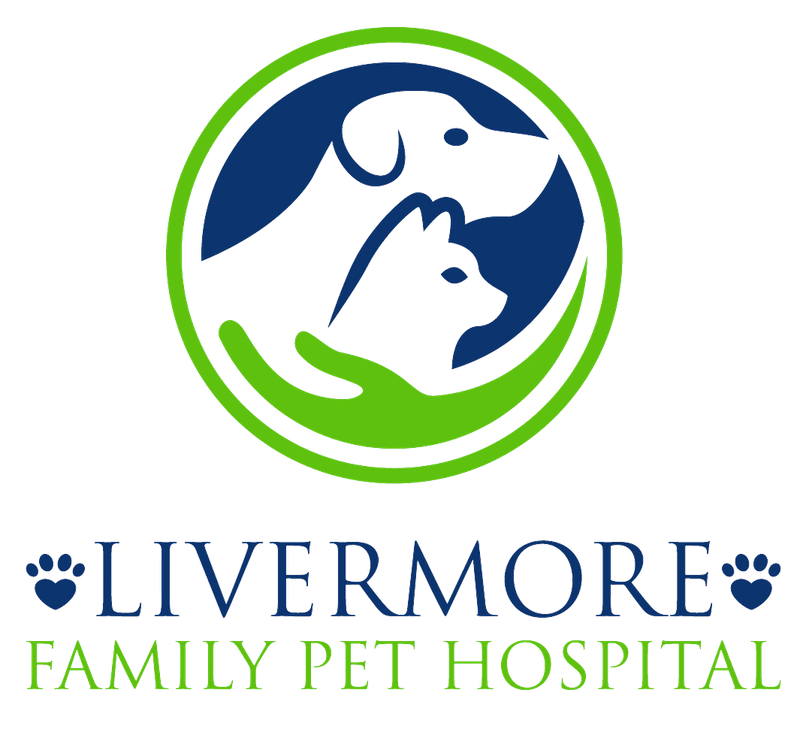From the playful puppy to the silvered-snouted senior, every dog has different needs that we need to pay close attention to. As a veterinarian, I can say without hesitation that nutrition is perhaps one of the most important pieces to every pet’s health. Understanding the unique needs of your canine companion throughout its stages and ages will guide us in making the right decisions about their diet to support their health and vitality throughout life.
The market for dog nutrition and dietary needs is a bit of a Wild West situation. Other than The Association of American Feed Control Officials (AAFCO) requirements, there aren’t many standards. There is tremendous variation between companies and even between diets from the same company, meaning pet owners need to do their part in researching and providing proper nutrition for their dogs.
In this blog, we’ll explore the three main stages of a dog’s life—puppy, adult, and senior—and the key considerations and biological needs that help veterinarians craft healthy and sustainable diets for your dog at every age.
What Does Optimal Nutrition Look Like?
Now, for the question I’m sure every veterinarian has been asked and every pet owner has Googled at least once: What does optimal nutrition for my dog look like?
While I’d love to give a simple and straightforward answer to that, I’m afraid there isn’t one.
The reality is that all pets should be assessed as individuals and need to have appropriate diets chosen based on their individual needs. While generalizations would be easier for pet owners to adhere to, they aren’t productive for anyone and do little to ensure each and every dog is getting the specific nutrition they need.
The days of blanket statements are over. Based on what we, as veterinary professionals, are learning about health, nutrition, and the role the microbiome plays in a dog's overall well-being, we need to look at our pets individually and decide what's best for them. What works for one dog may not work for another, and embracing this element of personalized nutrition is an important step forward for veterinarians and pet parents. Organizations like the Dog Aging Project, are diligently researching the factors, including nutrition, that influence aging and impact a dog's health and quality of life. I'm hopeful that their research will shed light on additional factors that contribute to optimal nutrition for our canine companions.
Key Considerations for Dog Nutrition
- Calories: Calories provide the energy necessary for metabolism, growth, physical activity, and overall health in a dog's diet. Calorie requirements for all dogs will vary depending on factors such as age, size, activity level, and metabolic rate.
- Protein: In all animals, protein supplies the body with essential amino acids and is critical for adequate metabolic functions and, of course, for building muscle. It is also important for satiety. A dog that is not getting enough protein will feel hungry all the time and may lose lean muscle. Protein is important in every life stage. The levels of protein should vary by life stage; however, it is very murky and there is no definitive answer regarding optimal protein levels.
- Carbohydrates: Carbohydrates are an important source of energy for dogs, providing readily available fuel for bodily functions and activities. While dogs can digest carbohydrates, their diet should primarily consist of high-quality protein and fat, with carbohydrates making up a smaller proportion.
- Fatty Acids: Fatty acids play key roles in supporting skin and coat health, brain function, immune system function, and overall cellular function. They benefit the body in many ways and affect almost every organ system, similar to how they work in humans. The amount recommended varies by the conditions that a pet has. Inflammatory diseases, arthritis and cancer require higher levels of Omega 3’s than dogs without those conditions.
- Micronutrients: Micronutrients are essential vitamins and minerals that are required by dogs in small quantities to support various physiological functions. Vitamins play critical roles in processes such as metabolism, immune function, and vision, while minerals are essential for bone health, muscle function, and enzyme activity. Common micronutrients for dogs include vitamin A, vitamin D, vitamin E, vitamin K, B vitamins (such as B12), calcium, phosphorus, magnesium, potassium, zinc, iron, and selenium.
Nutrition at Every Stage
While an individualized approach to dog nutrition is highly recommended, there are a few aspects of each stage in a dog’s life that commonly necessitate certain nutritional considerations. Knowing these commonalities can help you better understand your veterinarian’s recommendations for your dog’s diet and help you learn to adapt your dog’s feeding to keep them healthy, no matter where life takes them.

Nutritional Needs for Puppies: A Focus On Growth
Meeting the nutritional needs of a dog during the puppy stage of their life is crucial for setting a foundation of good health and proper eating habits. Within their first few months of life, puppies are rapidly growing and expending quite a bit of energy to do so, which means they need more calories, protein, fats, vitamins, and minerals.
Size and breed considerations are important during the puppy stage, as larger and smaller dogs can benefit from specially formulated diets to ensure proper development of their bones, muscles, and joints. But again, there won’t be a singular solution to what you should be feeding your puppy, as there isn’t a “one-size-fits-all” nutrition plan. During your first few vet visits with your new puppy, be sure to ask your veterinarian for recommendations on types of food and feeding schedules to dial in your puppy’s nutrition and set them on a path for good long-term health.
Nutritional Needs for Adult Dogs: Muscle Growth & Sustainability
By the time a dog has reached the adult stage of its life, it'll be done growing and have a new set of nutritional needs that will take priority for its owners. Depending on your dog's breed and a few other factors, they'll likely be full-grown between the ages of 12 and 24 months, signaling their transition into adulthood. During this time, your dog will graduate to an adult-formulated food that will help you prioritize sustainable eating practices and weight maintenance.
For younger adult dogs, it is important to pay attention to protein intake if they are still putting on muscle. Energy requirements are definitely affected by exercise level so naturally we want to always be watching our pets body condition and feeding for a very lean body condition.
In the later years of an adult dog’s life, you’ll want to pay special attention to their capacity to move and exercise. If your dog is starting to slow down earlier than planned, you may need to adjust their diet to match their energy levels to avoid unnecessary weight gain and obesity.
Nutritional Needs for Senior Dogs: Adapting to Changes
When your dog officially becomes a senior is highly dependent on their breed and size. But, as dogs age, it’s normal for their activity levels to decrease and normal age-related issues to occur, such as minor dental issues or arthritis, among others. These changes will impact their nutritional needs and may even require owners to adapt their feeding practices, such as switching to wet food or easier-to-chew kibble formulas for older dogs with dental issues.
There are currently no set standards for senior diets, so checking in with your veterinarian regularly is crucial to ensuring your dog lives out its golden years in good health and comfort.
Other Life Factors that Affect Nutritional Needs
- Breed: Different breeds have different nutritional needs, and while there are no specific standards for breed-based feeding, they are on the horizon. So, in the meantime, we should look at our dogs as individuals and work from there.
- Pregnancy: Monitoring your dog’s nutrition during pregnancy is important to identify if they need any additional supplements to support them.
- Exercise Level & Musculature: Just like in humans, the more a dog moves and exercises, the more calories they’ll need to consume each day to maintain their weight.
- Health Conditions & Illnesses: If your dog receives a new diagnosis, be sure to check in with your veterinarian to see if their diet, supplements, or exercise routine should be changed. This is especially important if any new medications or treatments are being introduced that could affect appetite or energy.
- Other Changes: Any change to your dog’s overall health and well-being or exercise routine could impact their nutritional needs, so when in doubt, consult your veterinarian. Your dog’s health is far too precious to leave up to guesswork or random advice you found online.

The Signs Your Dog’s Nutrition Isn’t Suitable
The best gauges of nutrition in dogs are body weight, stool quality, coat and nail quality, and energy level, all of which should be regularly monitored by owners and veterinarians anyway.
Of these gauges, body weight is the most obvious and easiest to detect major changes in. If your dog has put on weight and is too heavy they are over nourished; if they are too lean then they are undernourished. Resources, like charts depicting Body Condition Scores, can be useful for determining if your dog is severely under or over nourished and if you need to check in with your veterinarian prior to your next wellness exam.
A dog with a good nutrition regiment should have stools that look like tubes that are easy to pick up with no residue. There should not be much, if any, flatulence. They should have a shiny coat, smooth shiny nails and they should be energetic and playful. There are numerous aspects of a dog’s health that affect energy level other than diet, but it is one thing to look for if your pet's nutrition is optimal.
Avoiding Obesity and Malnourishment at Every Stage of a Dog’s Life
A dog’s level of nutrition will have a tremendous impact on their weight. Just like in humans and other animals, weight refers to the mass of a dog's body, which is influenced by factors such as genetics, diet, exercise, and metabolism. Maintaining an optimal weight is essential for a dog's overall health and well-being.
Numerous issues can arise when a dog weighs too much or too little, and these issues have the potential to seriously impact their long-term health and well-being. Underweight dogs may suffer from nutritional deficiencies and weakened immune systems, while overweight dogs are at risk of developing various health problems earlier in life, including arthritis, diabetes, and heart disease. Chunky dogs may be cute, but they simply age better if they stay skinny and maintain an optimal weight.
The best way to prevent obesity is to know and understand the use of body condition scoring charts and use your pet's own body as a guide for how much to feed. To promote health and prevent chronic disease, dogs should remain lean and eat a diet that is in line with their metabolic rate and energy needs.
The best snacks are fruits and veggies. The Cruciferous vegetables may help regulate gut inflammation, and they are loaded with beneficial antioxidants, polyphenols, and fiber. I recommend the following rule of thumb to pet owners looking to incorporate healthy, natural snacks into their dog's diet: work up to ¼ cup per 10 pounds of body weight per day.
Owners should cook or steam most veggies except the ones very high in water, like cucumbers, zucchini, and bell peppers. Introduce fruits and vegetables one at a time to ensure your pet can tolerate them because not all veggies are tolerated by all pets! Once you have successfully introduced your dog to a few vegetable options, then just rotate through them. Starchy veggies don't count; I consider these carbs more than veggies. Be sure not to include any toxic fruits or vegetables in your dog's diet, like onions, grapes, or raisins.
Partnering With Your Veterinarian For Proper Nutrition
Treating your dog as an individual with unique dietary and nutritional needs is a great step forward in providing them with everything they need to live a long and healthy life. But you shouldn’t navigate nutrition alone.
Your veterinarian can provide valuable guidance and recommendations tailored to your dog's specific needs, taking into account factors such as age, size, activity level, and any underlying health conditions. By working closely with your veterinarian, you can develop a customized nutrition plan that meets your dog's nutritional requirements while promoting optimal health and preventing nutritional deficiencies or excesses. Regular check-ups and consultations with your veterinarian allow for adjustments to your dog's diet as they age or their health status changes, ensuring that they receive the necessary nutrients to thrive at every stage of life. Additionally, your veterinarian can help you navigate the vast array of pet food options available, ensuring that you select high-quality, balanced diets that meet nutritional standards and are suitable for your dog's unique needs.
If you have questions and you'd like to reach out to us, you can call us directly at (925) 744-6421, or you can email us at [email protected]. Don't forget to follow us on social media Facebook, Instagram.

